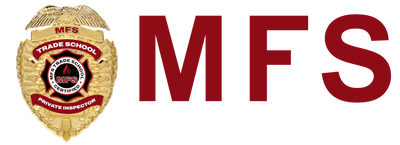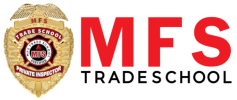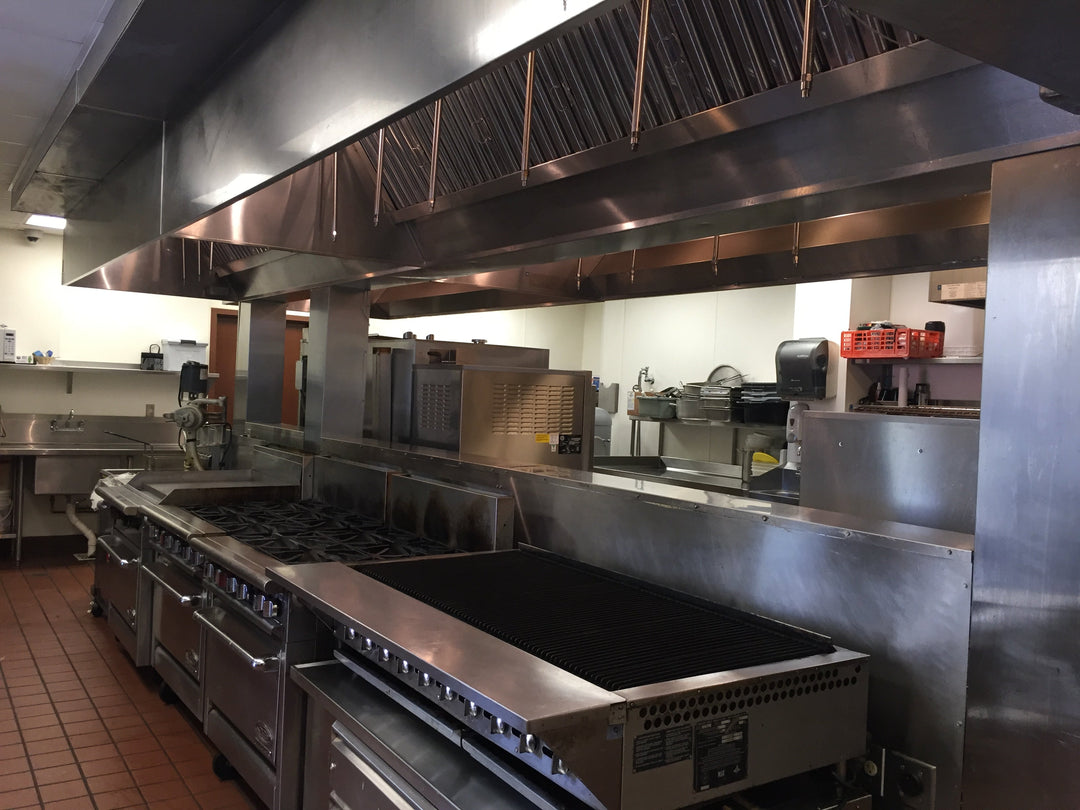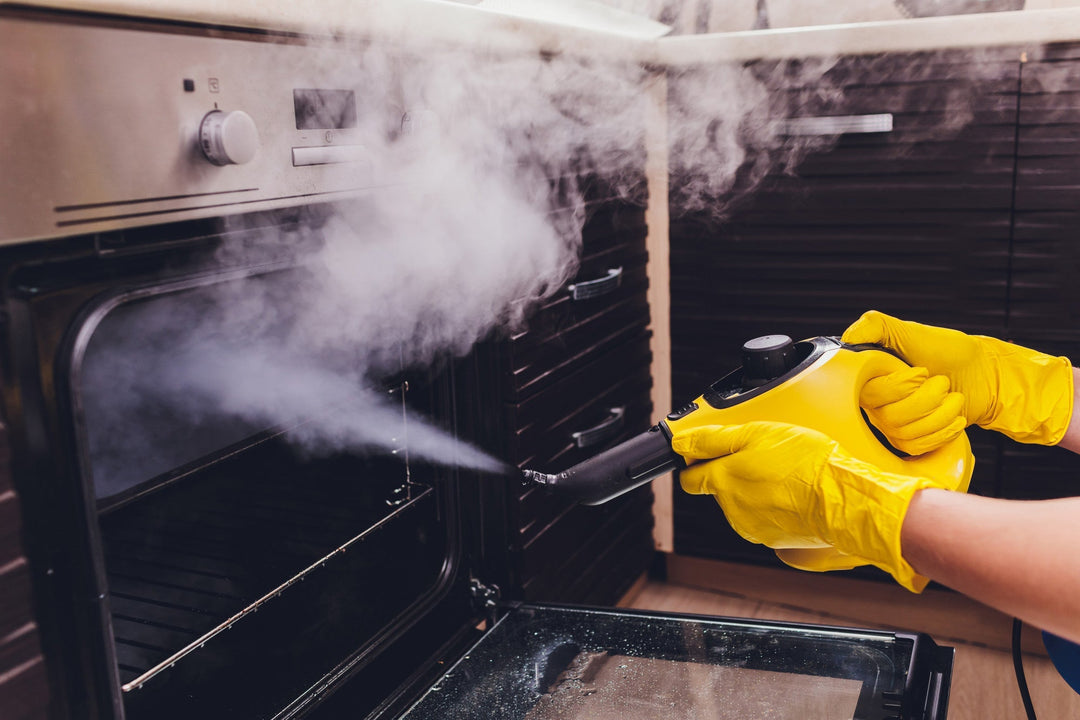Breaking Into the Hospitality Industry: How Exhaust Cleaning Services Can Give You an Edge
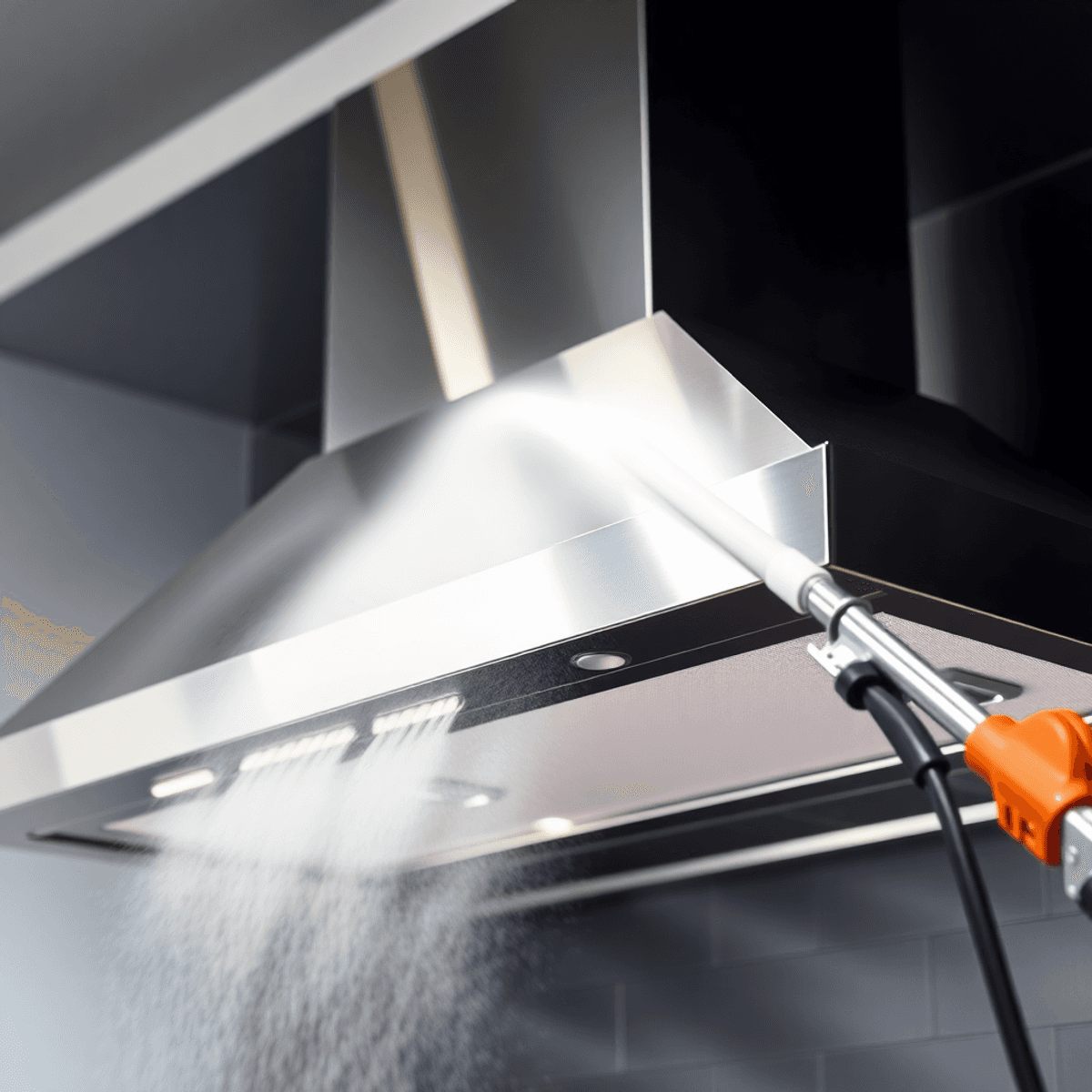
The hospitality industry is a massive global market worth $4.7 trillion. Hotels and resorts have complex kitchen systems that require strict maintenance standards. These commercial kitchens serve hundreds of guests every day, producing a significant amount of grease, smoke, and airborne particles that build up in exhaust systems.
Professional exhaust cleaning services are crucial in maintaining:
-
Fire safety protocols
-
Indoor air quality standards
-
Operational efficiency
-
Health code compliance
-
Energy conservation
As hospitality establishments face stricter regulations and increased scrutiny from health inspectors, the demand for specialized exhaust cleaning services continues to grow. Hotels and resorts need certified professionals who understand the unique challenges of maintaining commercial kitchens.
This specialized market segment presents significant opportunities for MFS-trained exhaust cleaning professionals. With the right certification, technical skills, and business knowledge, you can position your services as essential to the daily operations of the hospitality industry.
The Importance of Specialized Equipment
To succeed in this industry, using advanced tools like the MFS Electrostatic Misting Fogger can greatly improve your service efficiency. This battery-operated fogger is built for heavy-duty use, making it an invaluable tool for any exhaust cleaning professional.
Essential Services for Hospitality Establishments
Hotels and resorts often struggle with grease buildup in their kitchen systems. Providing specialized services, such as hood cleaning or using a powerful hood degreaser, can set your business apart from competitors.
Building Your Client Base
With proper training and certification, you can effectively build a client base in the hospitality sector by meeting industry-specific compliance requirements. The MFS Trade School offers comprehensive programs that equip aspiring professionals with the necessary skills to bridge America's skills gap.
Debunking Myths about Kitchen Hood Cleaning
Understanding the common misconceptions surrounding kitchen hood cleaning is crucial for success in this field. Familiarizing yourself with the top 5 myths about kitchen hood cleaning will better prepare you for client consultations and service execution.
This guide explores proven strategies to:
-
Develop specialized service offerings
-
Create sustainable business relationships with hotels and resorts
-
Scale your operations in the luxury hospitality market
Learn how to leverage your exhaust cleaning expertise and transform it into a thriving business serving the hospitality industry's elite establishments.
Understanding the Unique Challenges of Hospitality Kitchens
Hospitality kitchen environments present distinct operational complexities that demand specialized exhaust cleaning solutions. These high-volume cooking spaces operate continuously, serving hundreds or thousands of meals daily across multiple food service outlets.
Critical Ventilation Requirements
-
Heavy grease accumulation from constant cooking operations
-
Multiple hood systems spanning different kitchen zones
-
Complex ductwork configurations specific to hotel layouts
-
High-temperature cooking equipment requires enhanced ventilation
-
24/7 operational demands limiting maintenance windows
NFPA 96 Compliance Standards
The National Fire Protection Association's NFPA 96 standard sets strict requirements for hospitality kitchen ventilation:
-
Mandatory inspection schedules based on cooking volume
-
Specific cleaning methods for different system components
-
Documentation requirements for all maintenance activities
-
Clear guidelines for grease accumulation measurements
-
Emergency cleaning protocols when limits are exceeded
Industry-Specific Certifications
Professional certification requirements vary by location and scope:
-
CECS (Certified Exhaust Cleaning Specialist)
-
CESI (Certified Exhaust System Inspector)
-
NADCA Certification Air Systems Cleaning Specialist (ASCS)
-
Ventilation System Mold Remediator (VSMR)
Training for these certifications can be pursued through various trade schools that offer specialized courses, such as Kitchen Exhaust Hood Cleaning, which is crucial for compliance with NFPA Code 96.
Air Quality Management Challenges
Hotel kitchens face unique air quality considerations:
-
Cross-ventilation between multiple cooking stations
-
Smoke and odor control for guest comfort
-
Temperature regulation in different zones
-
Balanced air pressure maintenance
-
Prevention of cooking odor migration to guest areas
Equipment-Specific Requirements
Different cooking equipment demands specialized cleaning approaches:
-
Char broilers with heavy grease production
-
Wood-fired ovens require spark arrestors
-
Wok stations needing high-volume extraction
-
Rotisserie systems with specific grease collection
-
Multiple fryer banks requiring coordinated maintenance
These challenges create opportunities for specialized service providers who understand the unique demands of hospitality kitchen environments. Successful exhaust cleaning businesses must develop systematic approaches to address these complex requirements while maintaining the highest safety and compliance standards. For those seeking to enter this field, acquiring the right tools, such as a pressure washing hose, can significantly enhance efficiency in maintaining these kitchens.
-
Mastering Fire Safety Measures and Compliance Standards
Fire prevention in hospitality kitchens requires a systematic approach to safety protocols and regulatory compliance. MFS graduates must implement comprehensive fire safety measures that align with industry standards while protecting staff and guests.
Essential Fire Prevention Protocols:
-
Install and maintain UL 300 compliant fire suppression systems
-
Conduct regular inspections of fire extinguishing equipment
-
Establish clear evacuation routes and emergency procedures
-
Monitor grease accumulation levels in exhaust systems
-
Document all maintenance and cleaning activities
Key Compliance Requirements for Hotels:
-
Local health department regulations
-
Insurance company specifications
-
State-specific fire safety codes
-
OSHA workplace safety guidelines
Critical Cleaning Intervals:
High-Volume Operations (12-16 hours daily):
-
Monthly hood and duct cleaning
-
Quarterly fan maintenance
-
Weekly grease filter cleaning
Standard Operations (8-12 hours daily):
-
Quarterly hood and duct cleaning
-
Bi-annual fan maintenance
-
Bi-weekly grease filter cleaning
Implementing effective hood cleaning strategies not only prevents fire hazards but also promotes a safe kitchen environment.
Risk Assessment Protocols:
-
Identify potential fire hazards
-
Evaluate current safety measures
-
Assess cleaning frequency requirements
-
Review emergency response procedures
-
Update safety protocols as needed
Documentation Requirements:
Maintain detailed records of:
-
Cleaning schedules
-
Inspection results
-
Maintenance activities
-
Staff training sessions
-
Equipment certifications
Professional exhaust cleaning services must demonstrate expertise in fire-resistant coating applications, grease removal techniques, and advanced cleaning methodologies. Hotels require specialized attention to ventilation system components, including exhaust fans, ductwork, and hood assemblies.
Building strong relationships with local fire marshals helps ensure compliance with evolving regulations. Regular communication with hotel management keeps them informed about maintenance schedules and potential safety concerns.
Successful MFS graduates integrate these standards into their service offerings, positioning themselves as essential partners in maintaining safe kitchen environments. This expertise creates opportunities for long-term service contracts with hospitality venues.
In addition to fire safety, maintaining hygiene is equally important in commercial kitchens. With the rise of foodborne illnesses and viral outbreaks, it has become increasingly important for these establishments to adopt advanced virus disinfection methods. Implementing effective cleaning protocols not only protects customers but also ensures compliance with health standards.
For specialized cleaning needs such as those required in walk-in freezers, MFS offers a versatile freezer cleaner that operates effectively even at -20°F without the need for rinsing.
Moreover, it's vital to regularly assess the risk factors associated with kitchen operations. This involves identifying potential fire hazards, evaluating current safety measures, assessing cleaning frequency requirements, reviewing emergency response procedures, and updating safety protocols as needed.
2. Enhancing Air Quality, Operational Efficiency, and Food Safety Through Exhaust Cleaning Services
Regular maintenance of kitchen exhaust systems delivers substantial benefits for hospitality establishments through three critical areas:
Air Quality Management
-
Removal of airborne grease particles
-
Elimination of cooking odors
-
Reduction of smoke and harmful vapors
-
Prevention of mold and bacterial growth
The importance of kitchen exhaust cleaning for better health ratings cannot be overstated. Regular cleaning not only improves air quality but also keeps the kitchen compliant with health department standards. This is crucial as poor air quality can lead to serious health issues, making it essential for restaurants to maintain a clean and safe environment.
Energy Efficiency Optimization
-
Clean exhaust systems require less power to operate
-
Reduced strain on HVAC equipment
-
Lower utility costs through optimized airflow
-
Extended equipment lifespan
This highlights the top reasons why equipment maintenance matters for cleaning businesses, such as boosting efficiency, reducing downtime, and saving on costly repairs.
Cross-Contamination Prevention
-
Elimination of grease buildup in ductwork
-
Protection against pest infestations
-
Maintenance of proper air pressure balance
-
Prevention of backdrafting
Professional exhaust cleaning services implement specialized techniques to achieve these benefits:
Advanced Cleaning Methods
-
High-pressure washing systems
-
Chemical degreasing treatments
-
Mechanical scraping tools
-
HEPA-filtered vacuum systems
Among these methods, kitchen exhaust hood cleaning is crucial for maintaining a safe and efficient kitchen environment.
Strategic Maintenance Scheduling
-
Peak-hour cleaning avoidance
-
Zone-based cleaning approach
-
Regular inspection intervals
-
Documentation of cleaning cycles
Quality Control Measures
-
Before/after photo documentation
-
Air quality testing
-
Airflow measurement
-
System performance monitoring
The impact of professional exhaust cleaning extends beyond basic maintenance:
Operational Benefits
-
Reduced kitchen temperature
-
Improved staff comfort
-
Enhanced cooking environment
-
Better temperature control
Cost Savings
-
Decreased energy consumption
-
Reduced equipment repairs
-
Lower insurance premiums
-
Prevention of costly shutdowns
Health and Safety Advantages
-
Improved indoor air quality
-
Reduced respiratory risks
-
Enhanced workplace safety
-
Better guest experience
Regular exhaust system maintenance creates a positive cycle of benefits: clean systems operate more efficiently, requiring less energy while providing better air quality and safer working conditions. This systematic approach to exhaust cleaning supports both immediate operational needs and long-term business sustainability in the hospitality sector.
Additionally, understanding the role of cooking oil filtration can further enhance food safety and operational efficiency in restaurants. Proper cooking oil filtration not only impacts profitability but also significantly.
3. Attracting Hospitality Clients with Certified Technicians and Specialized Services
Certification is a crucial factor that sets apart businesses in the competitive hospitality cleaning industry. MFS-certified technicians have proven expertise in handling complex hotel ventilation systems, which instantly establishes credibility with potential clients.
Key Certifications for Hospitality Cleaning Services:
-
NFPA 96 Certification
-
IKECA Certification
-
Health and Safety Certifications
-
Environmental Protection Agency (EPA) Recognition
-
State-specific Licenses
Specialized Services for Hotel Kitchens:
-
High-volume grease extraction
-
Custom-designed cleaning schedules
-
Emergency response protocols
-
Documentation and compliance reporting
-
Advanced inspection techniques
Professional certification through MFS training programs equips technicians with specialized knowledge in:
-
Advanced grease removal techniques
-
Safety protocols for luxury kitchen equipment
-
Chemical handling and disposal procedures
-
Modern cleaning technology operation
-
Quality control measures
Hotels prioritize service providers who demonstrate a comprehensive understanding of their unique operational requirements. MFS-certified professionals possess the technical expertise to:
-
Implement systematic cleaning approaches
-
Handle diverse kitchen configurations
-
Maintain detailed service records
-
Provide emergency support
-
Ensure regulatory compliance
Building Trust Through Professional Excellence:
To build trust and long-term relationships with clients, it's essential to showcase professional excellence. Regular team training updates, documented safety procedures, insurance coverage verification, performance guarantees, and transparent pricing structures all contribute to this trust-building process. One effective way to enhance this transparency is through custom video reviews from satisfied clients, providing real experiences and insights that potential customers can relate to.
Specialized grease removal techniques for hotel kitchens require advanced equipment and methodologies:
-
Pressure washing systems
-
Chemical degreasing solutions
-
Steam cleaning technology
-
Access equipment for high-reach areas
-
Waste collection systems
Successful hospitality partnerships rely on consistent service delivery and professional presentation. Certified technicians maintain:
-
Branded uniforms
-
Professional-grade equipment
-
Digital documentation systems
-
Communication protocols
-
Quality assurance measures
The combination of certified expertise and specialized services creates a compelling value proposition for hospitality clients seeking reliable exhaust cleaning partners. This professional foundation enables service providers to establish long-term relationships with hotels and resorts while maintaining high service standards.
4. Customizing Cleaning Schedules and Developing Comprehensive Maintenance Plans for Hotels
Creating effective maintenance plans for hotel exhaust systems requires strategic scheduling and meticulous attention to operational patterns. Successful cleaning businesses understand the critical balance between maintaining safety standards and minimizing disruption to hotel operations.
Key Scheduling Considerations:
-
Off-Peak Hours: Schedule deep cleaning during low-occupancy periods
-
Kitchen Usage Patterns: Align maintenance with specific meal service schedules
-
Seasonal Fluctuations: Adjust cleaning frequency based on peak tourist seasons
-
Event Calendar: Account for special events, conferences, and banquets
Components of a Comprehensive Maintenance Plan:
-
Initial Assessment
-
Kitchen hood configuration documentation
-
Current grease buildup evaluation
-
Ventilation system performance testing
-
Risk assessment report
-
Customized Cleaning Protocol
-
Specific cleaning methods for different hood types
-
Equipment-specific maintenance requirements
-
Chemical usage guidelines
-
Safety procedures
-
Documentation System
-
Digital maintenance logs
-
Photo documentation
-
Compliance certificates
-
Service verification reports
Operational Integration Strategies:
-
Establish clear communication channels with kitchen management
-
Create emergency response protocols
-
Implement progress tracking systems
-
Develop quality control checkpoints
Professional cleaning of hospitality facilities requires adaptability and precision. Successful partnerships with hotels for hood cleaning depend on creating flexible schedules that accommodate their unique operational demands while maintaining strict compliance standards.
Building a sustainable business in hotel kitchen cleaning means developing systems that can scale with your clients' needs. This includes creating detailed maintenance schedules, establishing clear communication protocols, and maintaining comprehensive documentation of all services performed.
To accelerate your cleaning business growth, consider seeking mentorship from seasoned industry experts. Their wisdom and experience can help you navigate challenges and seize opportunities.
If you're looking to start your own exhaust hood cleaning business, essential equipment packages are available to cover all necessities for a successful start-up.
Moreover, maintaining high cleanliness standards in your restaurant is crucial not only for compliance but also for customer satisfaction. Here are some essential restaurant cleanliness tips from health inspectors that could prove valuable.
Lastly, if you're already in the hood cleaning business but struggling to see significant growth, there are strategies that can help you transform your hood cleaning business in just one year.
5. Effective Marketing Strategies to Win Contracts in the Hospitality Industry
Securing contracts in the hospitality sector requires a strategic marketing approach tailored to the industry's unique demands. Here's a comprehensive strategy to position your exhaust cleaning services effectively:
Digital Marketing Tactics
-
Create industry-specific landing pages highlighting hotel kitchen expertise
-
Develop case studies showcasing successful projects with hotels
-
Implement targeted PPC campaigns focusing on hospitality keywords
-
Utilize LinkedIn for B2B networking with hotel facility managers
-
Share before/after photos of exhaust cleaning projects on social media, utilizing a custom photo gallery for impactful business imagery
Building Industry Partnerships
-
Join hospitality associations and attend industry events
-
Partner with kitchen equipment suppliers
-
Network with hotel maintenance contractors
-
Build relationships with restaurant consultants
-
Connect with hotel management companies
Content Marketing Strategy
-
Publish educational content about:
-
Cost savings through preventive maintenance, potentially leveraging insights from MFS Trade School's training programs in restaurant cleaning and maintenance.
-
Create video content demonstrating cleaning processes.
-
Develop white papers on ventilation system maintenance
Direct Outreach Methods
-
Schedule property tours with facility managers
-
Offer complimentary inspections for new clients
-
Present maintenance proposals to hotel groups
-
Host educational seminars for hotel staff
-
Provide custom maintenance schedules
Competitive Differentiation
-
Highlight specialized certifications from recognized training programs like those offered by MFS Trade School
-
Emphasize 24/7 emergency service availability
-
Showcase eco-friendly cleaning methods
-
Detail quality assurance processes
-
Demonstrate insurance coverage and safety protocols
Value-Added Services
-
Provide detailed inspection reports
-
Offer digital documentation systems
-
Include preventive maintenance recommendations
-
Supply compliance certificates
-
Create custom maintenance tracking tools
Industry-Specific Marketing Materials
-
Design professional brochures for hotel decision-makers that reflect the expertise gained from specialized training programs such as those at MFS Trade School.
-
Create technical specifications sheets tailored to the hospitality sector's needs.
-
Develop ROI calculators for maintenance services that provide clear value propositions.
-
Prepare compliance documentation packages that meet industry standards.
-
Build comprehensive service proposals that outline all aspects of your offering.
These marketing strategies help establish credibility and demonstrate expertise in the hospitality sector. A consistent presence across multiple channels increases visibility and builds trust with potential clients.
6. Expanding Your Business into the Luxury Segment of the Hospitality Sector
The luxury hospitality sector has high expectations when it comes to kitchen exhaust maintenance. Upscale hotels and resorts need specialized methods that match their premium brand image and discerning guests.
Key Requirements for Luxury Hotel Services:
1. Precision Cleaning Protocols
-
Use of top-grade, eco-friendly cleaning chemicals
-
Implementation of detailed documentation systems
-
Regular testing and verification procedures
-
Advanced inspection methodologies
2. Aesthetic Considerations
-
Maintaining pristine visual appearance of exhaust systems
-
Protection of surrounding surfaces and equipment
-
Minimal visible residue after service completion
-
Attention to detail in hard-to-reach areas
3. Operational Excellence
-
24/7 availability for emergency services
-
Flexible scheduling during off-peak hours
-
Rapid response times
-
Silent operation protocols during guest hours
Building a Premium Service Portfolio:
1. Equipment Investment
-
High-grade pressure washing systems
-
Advanced inspection cameras
-
Specialized access equipment
-
Premium cleaning tools and materials
2. Staff Development
-
Luxury hospitality etiquette training
-
Advanced certification programs
-
Cultural sensitivity workshops
-
High-end customer service skills
Service Differentiation Strategies:
-
Customized maintenance schedules based on kitchen volume, which can be informed by essential seasonal maintenance tips for kitchen exhaust systems
-
Detailed reporting systems with digital documentation
-
Regular system performance analysis
-
Preventive maintenance recommendations
-
Energy efficiency consultations
High-Volume Kitchen Considerations:
-
Multiple exhaust system configurations
-
Extended operating hours impact
-
Complex ventilation networks
-
Integration with building management systems
-
Special requirements for signature restaurants
The luxury segment requires establishing strong relationships with property managers and executive chefs. Understanding their unique operational challenges helps deliver services that match their exacting standards. Building a portfolio of high-end clients involves demonstrating expertise in handling sophisticated kitchen ventilation systems while maintaining the prestigious atmosphere these establishments demand.
Conclusion
Breaking into the hospitality industry with exhaust cleaning services requires dedication, expertise, and strategic positioning. The path to success lies in delivering exceptional service quality while understanding the unique demands of hotel and resort operations.
Key success factors for hospitality exhaust cleaning providers:
-
Maintaining rigorous safety standards and compliance protocols
-
Building a team of certified technicians with hospitality-specific training
-
Developing customized maintenance schedules that minimize operational disruptions
-
Implementing advanced cleaning technologies and eco-friendly solutions
-
Creating comprehensive documentation and reporting systems
The hospitality sector values long-term partnerships with trusted service providers. By demonstrating your commitment to excellence through consistent service delivery, transparent communication, and proactive maintenance solutions, you position your business as an indispensable partner in their operations.
The investment hotels and resorts make in professional exhaust cleaning services yields significant returns:
-
Enhanced guest satisfaction through improved air quality
-
Reduced fire risks and insurance premiums
-
Lower energy costs through efficient system operation
-
Extended equipment lifespan
-
Compliance with safety regulations
Your expertise in exhaust cleaning becomes a critical asset in maintaining the high standards expected in hospitality environments. By focusing on these elements and continuously adapting to industry needs, you establish yourself as a preferred vendor in this dynamic sector.
FAQs (Frequently Asked Questions)
What role do exhaust cleaning services play in the hospitality industry?
Exhaust cleaning services are essential in the hospitality industry for maintaining safe and efficient kitchen operations. They help prevent fire hazards, ensure compliance with regulations like NFPA 96, improve air quality, and enhance operational efficiency in hotels, restaurants, and resorts.
How can I break into the hospitality sector with my exhaust cleaning expertise?
To break into the hospitality sector, leverage your exhaust cleaning expertise by obtaining relevant certifications such as MFS hood cleaning training, understanding hospitality kitchen compliance standards, tailoring cleaning schedules to meet client needs, and offering specialized services like grease removal for hotel kitchens. Building trust through certified technicians and effective marketing strategies is also key.
Why is fire safety and compliance important in hospitality kitchen exhaust cleaning?
Fire safety and compliance are critical because commercial kitchens in hotels and restaurants are prone to grease fires if exhaust systems are not properly maintained. Adhering to fire prevention measures and regulations like NFPA 96 protects staff and guests, ensures legal compliance, and minimizes risks associated with kitchen fires.
How does regular exhaust cleaning improve air quality and food safety in hotels?
Regular maintenance of kitchen exhaust systems enhances indoor air quality by removing grease buildup and contaminants that can circulate in the air. This reduces energy consumption, minimizes cross-contamination risks, and supports food safety standards crucial for maintaining a healthy environment in hospitality kitchens.
What marketing strategies are effective for winning contracts in the hospitality industry?
Effective marketing strategies include leveraging digital marketing channels, networking within the hospitality sector, forming industry partnerships, showcasing certifications like MFS training credentials, highlighting specialized services tailored to hotel kitchens, and demonstrating compliance with food safety ventilation standards to attract and retain clients.
How can I expand my exhaust cleaning business into the luxury hospitality segment?
Expanding into the luxury hospitality segment involves understanding high-end hotels' specific requirements for kitchen exhaust maintenance, offering premium services such as high-volume kitchen vent system cleaning using top chemicals, building a strong hood cleaning portfolio for luxury clients, and positioning yourself as a trusted vendor through exceptional service quality and certifications.
